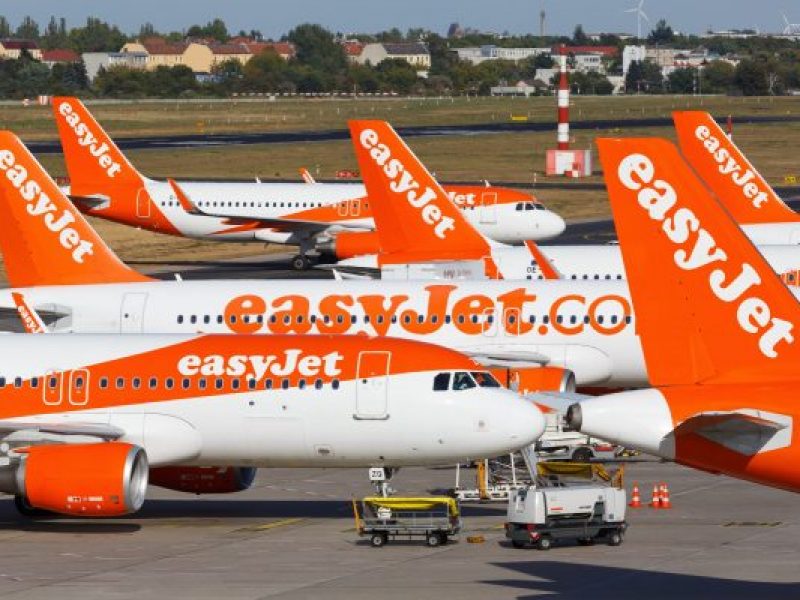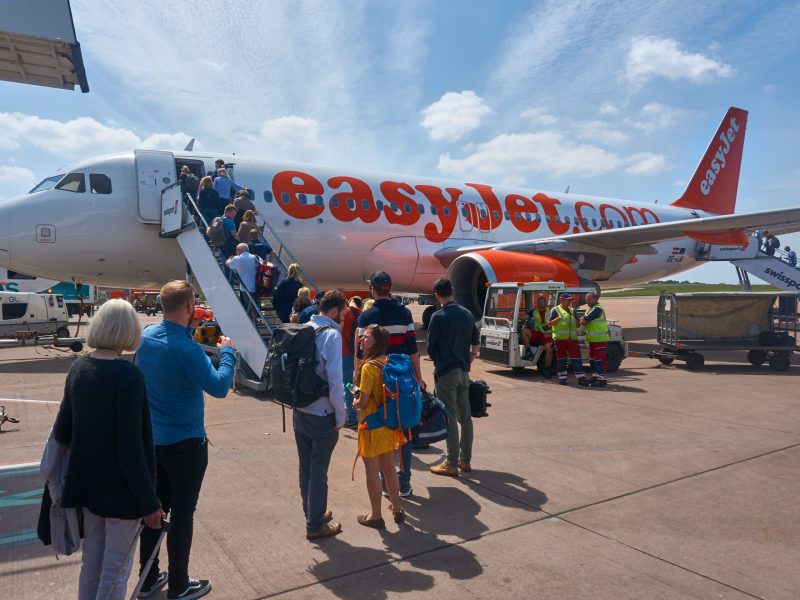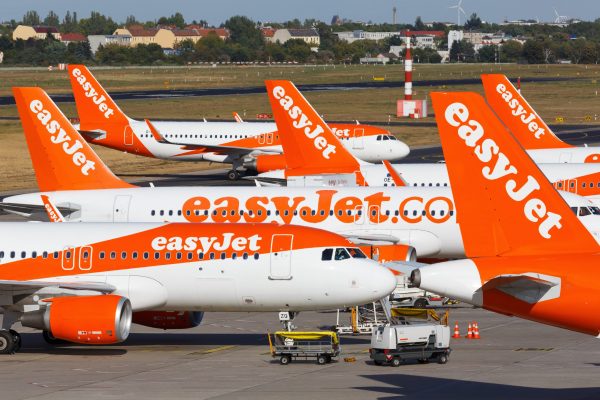
Grounded.
After Bloomberg, quoting confidential sources, reported on September 8 that easyJet was planning to raise move than £1 billion from shareholders, Johan Lundgren, its CEO, ‘fessed up the next day and said the airline was looking for £1.2 billion to help its recovery from the pandemic, according to Finance. EasyJet is back in the market looking for more cash 16 months after it released £450 million worth of shares– a case of wanting more soup, or not asking for enough money first time around?
Future – through a glass darkly

Will passenger numbers ever build back better?
EasyJet’s website had this to say: “As part of a review of its capital structure, the Board has concluded that raising additional equity will protect and strengthen easyJet’s long-term positioning in the European aviation sector. As a result, the Company is launching a Rights Issue, the net proceeds of which are expected to:
‒ Facilitate and accelerate the Group’s recovery from the impact of the COVID-19 pandemic by providing resilience from downside risks (should the COVID-19 pandemic continue to dampen or delay the
recovery of passenger volumes over the next 12 months); and
‒ Materially improve easyJet’s ability to deliver long-term value to shareholders through providing the
Group with the flexibility to take advantage of long-term strategic and investment opportunities expected to arise as the European aviation market emerges from the COVID-19 pandemic
“Having acted decisively over the last 18 months, easyJet is well-placed to emerge from the pandemic with renewed strength the potential to capitalise on growth opportunities that will create value for shareholders.”
Share price dropped 2.4p as a result
A big part of this decisive action was a £450 million share placement on June 24 last year, according to Bethan Staton in the FT, “…that aims to shore up its finances in the face of deep losses during the critical summer season. The budget airline announced the placing, representing almost 15% of its share capital, on Wednesday alongside its half-year results.
“These cover the period to March 31, (2020) one day after the airline grounded all flights but even at this stage, the pandemic was already having an effect. Passenger numbers in the period fell by 3m, or 7.4 per cent, and the group reported a pre-tax loss of £353m, compared with £272m for the same period in 2019. The loss was partly related to fuel hedging costs and seasonal factors — the airline usually runs at a loss in the winter months.”
Up to £200 off holidays – easyJet offer
It does call into question just how sound easyJet’s financial forecasting has been. Surely if the airline had made a pre-tax loss of £353 million on top of a headline loss in 2019, which was not affected by COVID, more should—could?—have been raised one-time 16 months ago?
Forecast 5’s “What if?” planning feature allows seamless scenario planning, across all budget lines and multi-currencies. No more flipcharts, calculators—abacuses?—simply one, easy-to-follow program that allows management to test and tease out costs and financial impact of dropping passenger numbers, seat spacing, rising fuel costs, staff redundancies and all aspects of running an airline or any other business. Try it for yourself with our free 21-day trial here.
And while Bloomberg says BA warns of serious cost problems as furlough ends, Ryanair predicts rapid rebound in airline travel.
Up to 20% off 850,000 seats - easyJet
“Dublin-based Ryanair Holdings Plc, Europe’s biggest discount carrier, said in August it will operate 250 new routes across its network this winter, seeking to capitalize on demand from people who missed out on a summer break. The low-price airline’s share price remained steady throughout the pandemic, while easyJet’s fell by 50%. Wizz Air Holdings Plc, another London-listed rival, has already restored 100% of pre-pandemic seating.”
So bullish is Wizz Air that it put in an offer for easyJet. “EasyJet has rejected a takeover approach from rival Wizz Air, as the Hungarian carrier pursues an aggressive expansion into western Europe to take advantage of the worst crisis in the history of aviation. Luton-based easyJet said on Thursday that it had received an approach in a “low premium and highly conditional” all-share deal, which the board “had no hesitation in rejecting” according to the FT.
“Despite rejecting the approach. easyJet’s leadership believes consolidation in the airline industry following the pandemic is inevitable.”
Johan Lundgren maybe finding his crystal ball a little murky right now. Welcome to Forecast 5’s ability to clear the future’s cloudy glass.
